‘We saw things we do not want to see’: Fear and trauma as 123 Malaysians evacuated from deadly protests in Bangladesh
The violence in Bangladesh had sparked concern in Malaysia, which has 139 students studying in the South Asian nation.
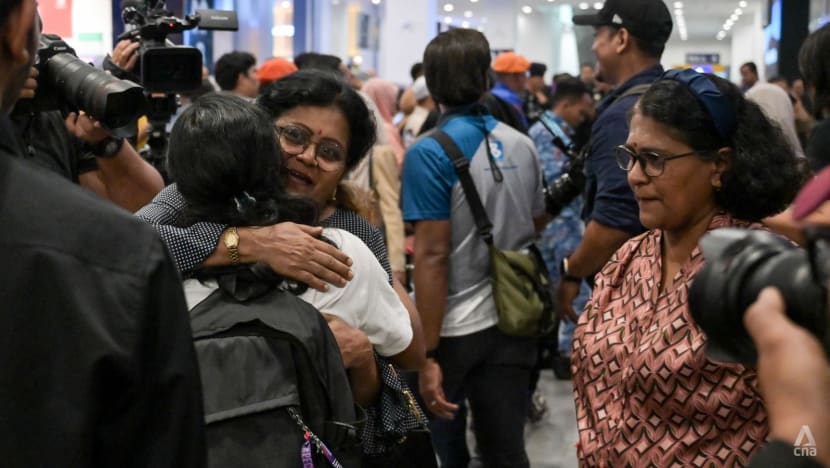
This audio is generated by an AI tool.
KUALA LUMPUR: Families hugged each other and cried as 123 Malaysians evacuated from Bangladesh arrived safely at Kuala Lumpur International Airport on Tuesday (Jul 23).
These included medical and agricultural students as well as private-sector employees and family members of embassy staffers working in Bangladesh.
Protests against admission quotas for government jobs in the South Asian country have spiralled into deadly violence since Friday, leaving at least 163 people dead, AFP reported on Monday, citing police and hospital reports.
Thousands of university students have for weeks protested against what they feel is a discriminatory system that reserves one-third of public-sector jobs for relatives of veterans who fought for the country’s independence from Pakistan in 1971.
Students started demonstrating earlier in July demanding a merit-based system. The protests on university campuses started peacefully but have now transformed into nationwide unrest, the BBC reported on Saturday.
Bangladesh's Supreme Court on Sunday scrapped most quotas on government jobs, but some organisers said the protests would continue, Reuters reported.
Ms Fatihah Fadli, a Malaysian medical student at Mymensingh Medical College, about four hours away from the capital Dhaka, said the situation in her school started to turn worrisome when some local students began protesting against the quota a few days ago.
“A curfew was imposed and we were instructed to stay home. The internet was cut off and we did not have WiFi for six days,” the 25-year-old said, at the arrival hall on Tuesday.
“During that time, we heard sounds of clashes. We felt scared as we heard that people were getting beaten up, and we couldn’t even go out to the market.”
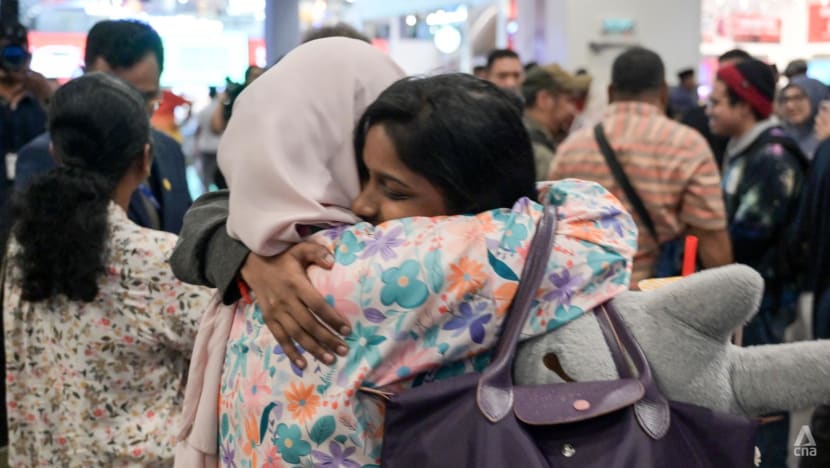
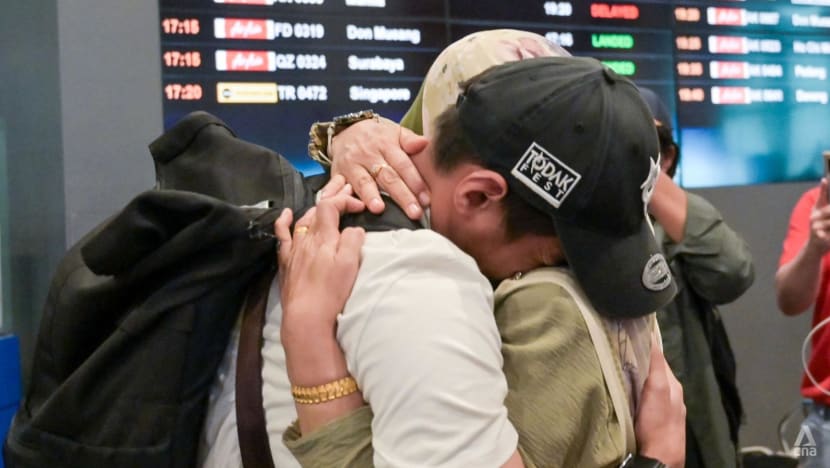
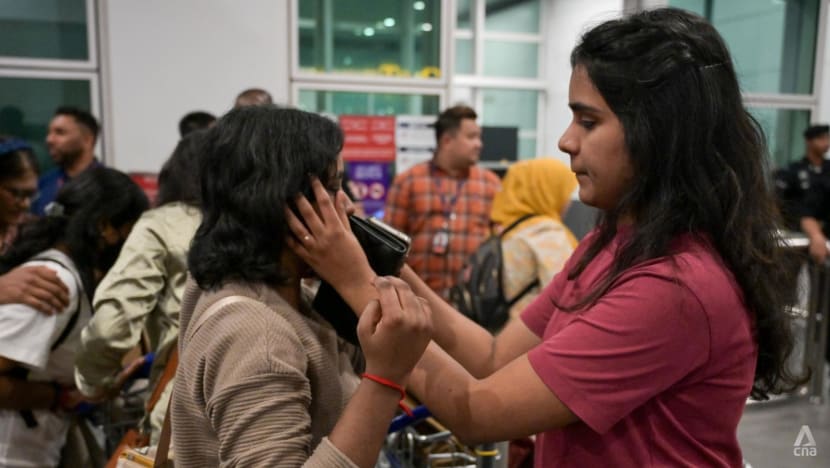
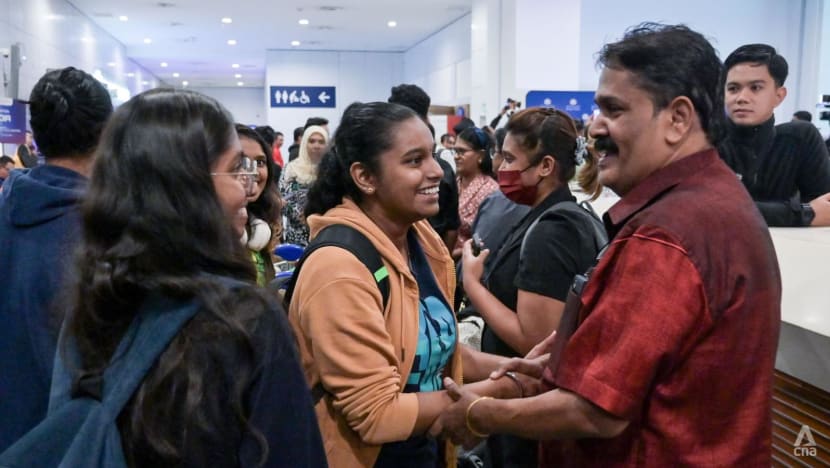
Ms Cassandra Devi, 26, a Malaysian student at Dhaka Medical College and one of those who were evacuated, said she saw unsavoury scenes on her way from her hostel to the Malaysian High Commission on Tuesday.
“We did see a lot of things that we do not want to see, like army officers deployed everywhere, tanks and police with guns and all,” she said.
Home Minister Saifuddin Nasution Ismail told reporters on Tuesday that the government had prepared psychologists to speak with students who might have experienced trauma.
“I had the chance to speak to some of the students, some of them are from Johor, Nilai, Seremban and Kedah. A few of them, based on their physical appearance, looked shocked,” he said.
“So in these cases, the psychologists play an important role.”
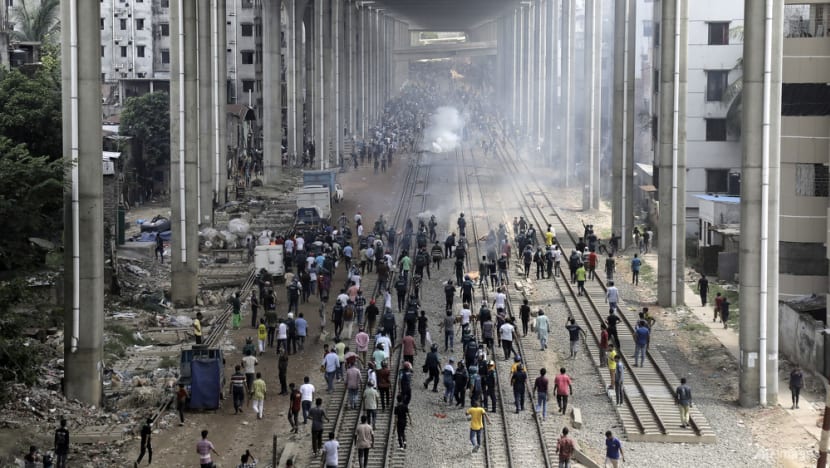
SOME STUDENTS STAYING PUT
Malaysia’s Ministry of Foreign Affairs said in a statement on Tuesday that 123 Malaysians boarded a chartered AirAsia flight at 11.23am Dhaka time to return home.
They landed at Kuala Lumpur International Airport’s Terminal 2 at around 5pm local time.
The violence in Bangladesh sparked concern in Malaysia, which has 139 students studying in the South Asian nation. India has also evacuated 4,500 students from Bangladesh, Malaysian news agency Bernama reported.
Mr Saifuddin said 80 of the 139 Malaysian students were flown home, with the rest opting to stay put in Bangladesh. He did not give the total number of Malaysians remaining in Bangladesh.
“Students who chose to stay said they were in their final year and they did not want their studies to be disrupted. They were also confident that the situation in Bangladesh would improve,” he said.
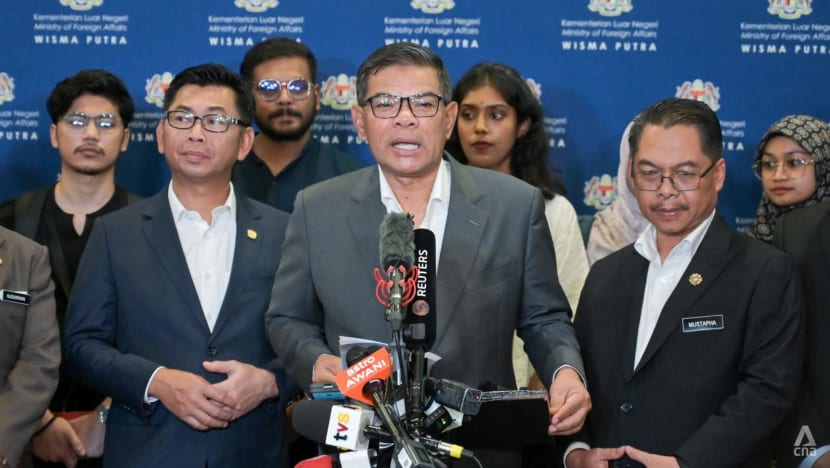
The minister encouraged Malaysians who chose to remain in Bangladesh to remain vigilant of the ongoing situation.
“Those who choose to stay are strongly urged to maintain regular communication with the High Commission to receive timely updates and support,” the Ministry of Foreign Affairs said, adding that the High Commission is committed to ensuring their safety as the situation evolves.
The ministry first said on Saturday it was closely monitoring the situation in Bangladesh, and had directed that “all necessary measures” be taken to ensure Malaysian students’ safety, such as relocating students to Malaysia's High Commission in Dhaka and providing them with accommodation.
High Commission officials had also planned to travel to Mymensingh to provide food supplies to students who were unable to purchase them due to the curfew.
But on Sunday, the ministry said it was considering “all available options”, including evacuation if necessary.
Foreign Minister Mohamad Hasan, who on Monday confirmed the evacuation operation, refuted suggestions of government inaction.
“I hope this will put all assumptions to rest, especially those who thought the government and ministry were not doing anything," he was quoted by the New Straits Times as saying.
The foreign ministry said its High Commission in Dhaka had coordinated the evacuation exercise with close cooperation from the Bangladeshi government.
“In this regard, the Government of Malaysia would like to extend its sincere appreciation to the Government of Bangladesh for the arrangement and facilitation in ensuring the success of this exercise,” it added.
PROTESTS SUSPENDED
On Monday, the Bangladeshi student group leading demonstrations suspended protests for 48 hours, with its leader saying they had not wanted reform “at the expense of so much blood”, AFP reported.
Protest coordinators say police and the student wing of the governing Awami League have been using brutal force against peaceful demonstrators, triggering widespread anger, the BBC report said.
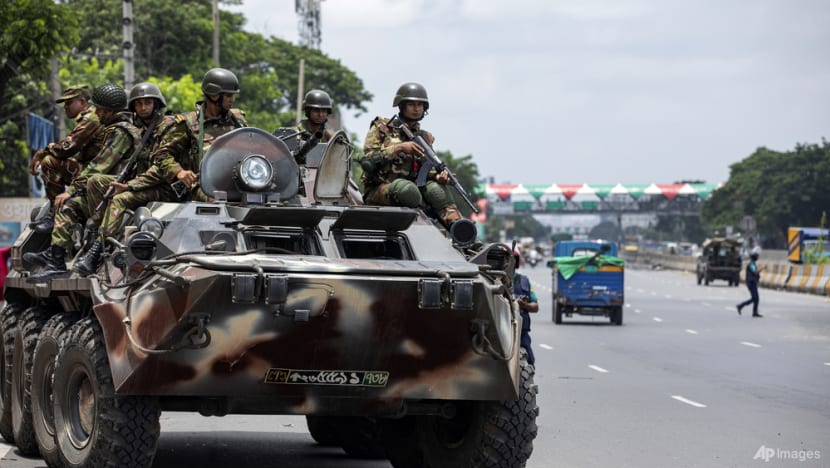
Both parties have traded blame for the violence, which has triggered an unprecedented communications blackout that shut down the internet and restricted phone services.
Before the Malaysians landed, Mr Mahmudin Abas, 70, said he last heard from his 26-year-old daughter Noorfaizzah on Friday before the internet was cut in Bangladesh.
Ms Noorfaizzah, a final-year medical student at Mymensingh Medical College, had planned to fly back to Malaysia on Thursday after the protests erupted, Mr Mahmudin said.
But on Thursday morning, she told her dad it became too dangerous to travel and was forced to return to her home near campus.
Mr Mahmudin said his daughter had not stocked up on enough food as she had not planned to stay, and she was then trapped indoors as clashes raged nearby.
“We started to panic. What if a building was burnt down and she had nowhere to go?” he said.
“She also told us that her friends who stayed in the student hostel had flown home a day earlier. But she’s staying alone near campus. So, there’s no guarantee of safety.”
On Friday, Mr Mahmudin and a group of parents of Malaysian students went to the Ministry of Foreign Affairs to ask for help and for authorities to take “quick action”.
“At that point they agreed to bring the students home as quickly as possible but they hadn’t decided to charter a flight,” he said.
Nevertheless, Mr Mahmudin was grateful to get confirmation from authorities that his daughter had managed to board the evacuation flight, expressing relief that she was physically fine.
Ms Fatihah’s father Dr Fadli Hamid, 53, said the parents started to take action after getting reports of rising food prices and student deaths due to the protests.
“When we heard that some students at Mymensingh Medical College had also died (in the protests), we decided that we could not do nothing and leave our children hanging,” he said.
When asked about accusations that the government did not act fast enough, Mr Saifuddin said the “bottom line” was that 123 Malaysians had arrived home safely.
“We sent a special flight there and they got back safely,” he said, adding that the evacuation operation was carried out “smoothly”.










